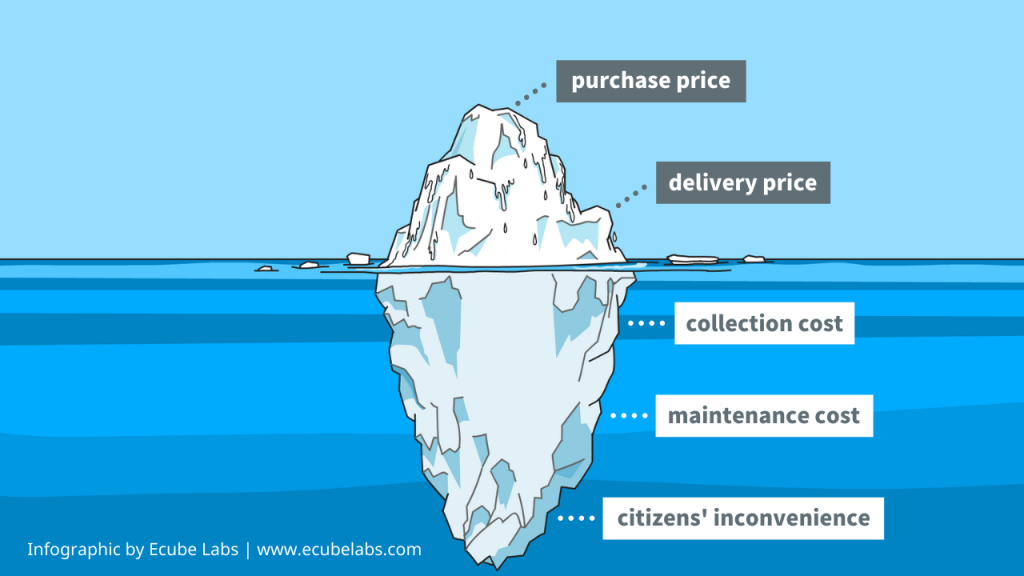The solar-powered waste compacting bin sold by Ecube Labs is not cheap. In fact, it is a couple times more expensive than conventional trash bins. Everyone who consults Ecube Labs stops to think once again when they come across the price, so we thought about it from the client’s point of view.
“Are compacting bins really that expensive?”
In business studies, there is a concept called total cost of ownership (TCO). This refers to the approach where a business analyzes all direct and indirect costs to determine the total cost of a certain technology/product.
It may sound difficult, but in fact, most of us use the TCO approach to some degree in our day-to-day lives. One example scenario is buying a new car. When buying a car, one pays a) the price of the car and b) registration fee and other fees or taxes related to the acquisition. These are what we call “initial costs.” However, one must also include the “running costs” in order to make a fair comparison. These ”running costs” may include c) insurance, d) fuel cost, which depends on fuel efficiency, e) repair costs, which depends on reliability, f) the cost of ‘inconvenience’ due to repairs, etc. Furthermore, one should consider g) the residual value of the car, since there are cars with higher resale prices than others.
Let’s apply this approach when comparing the cost of purchasing conventional trash bins and compacting trash bins. The initial costs of a compacting bin include a) the purchase price and b) the shipping fee. Since the purchase price of a compacting bin is expensive, we should set higher initial costs for a compacting bin. As for running costs, there are c) collection costs, d) maintenance costs, and e) cost of inconvenience to citizens due to overflow. Here, compacting trash bins can operate at much lower costs than conventional trash bins do. The comparative advantage that compacting trash bins have over conventional trash bins is reduction in collection costs due to reduced frequency of required collections.
Ecube Labs’ clients on average were able to reduce collection frequency by 85% and overall costs by 66%. Clients with high collection costs structurally (due to high labor costs or longer distance between bins), will find great benefits in solar-powered compacting trash bins from a TCO point of view.
Two things to remember:
- Think about the total cost of ownership before installing compacting bins
- When considering the switch from conventional to compacting bins, take into account not only the purchase price, but also the savings from reductions in collection frequency and maintenance costs.

This graphic highlights the obvious and underlying costs to consider when purchasing a waste bin (both conventional and compacting)
